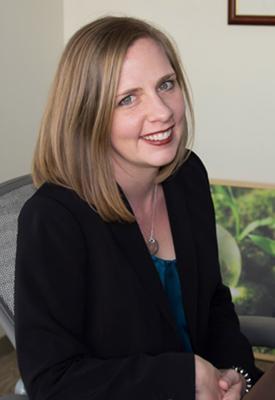Meet EPA Scientist Sherri Hunt, Ph.D.

Supporting the Best Air, Climate, and Energy Research
Dr. Sherri Hunt is the Assistant Center Director for the Air, Climate, and Energy (ACE) Research Program. She publishes articles in peer-reviewed journals and serves in leadership roles within professional scientific organizations. Throughout her time at EPA, Sherri has been a project officer on approximately 60 grants and led or participated in writing teams for at least a dozen solicitations for the Air, Climate, and ACE programs. She plays an active leadership role in the ACE program planning and coordination and was a key author for the Research Action Plan development.
As Dr. Hunt was once quoted in an article about the "Best Dissertation" Award, she just wants people to breathe clean air. Because she loves science, identifying research questions, and working to communicate scientific results, her current goal is to continue in her present position. Her longer term goal will likely be shaped by the mentors, scientists, and opportunities that she meets in the coming years.
How does your science matter?
I am the team leader for EPA’s Air, Climate, and Energy Science to Achieve Results (STAR) program. Our team manages the outside research piece of ACE by working across EPA to identify research that is of interest and necessity to regions, partners, and the public. I also interact with scientists, both in and outside EPA, to stay knowledgeable about the latest advances and pressing research questions. My job involves synthesis and translation of research results, rather than doing experiments on my own. The science that I am involved in is very broad because it involves all Air, Climate, and Energy Research STAR projects, which, as of now, is in the neighborhood of 100 ongoing projects.
My science matters because I help identify the most important research questions out there and help support work that is finding the answers. These research questions involve needed advancements, so people can breathe cleaner air, adapt and plan for climate change at a state and local level, as well as plan for the impacts that extreme events might have on air and water quality.
If you could have dinner with any scientist, past or present, who would you choose and what would you ask them?
This is a hard question for me to answer because there are so many scientists out there whom I want to sit down and talk with! In my job, I meet and interact with such a wide variety of scientists, each with their own expertise, so I couldn’t possibly single one out. I haven’t met a scientist that didn’t have something interesting to say.
What do you like most about your research?
In my position here at the EPA, the scientific results we’re trying to generate broadly impact people by strengthening the basis for sound policies and providing the knowledge needed to develop effective plans that will ultimately improve public health.
Although it may sound simple, we want everyone to breathe clean air, as well as for states, local governments, and communities to better prepare for the potential impacts of a changing climate.
Tell us about your background.
I received my bachelor’s degree in chemistry from the University of Georgia where I was encouraged by fabulous mentors to continue with my scientific education. I then went to the University of Minnesota for my doctorate in physical chemistry. My thesis involved determining the bond distances and angles of small acid-base complexes in the gas phase.
While in the lab, I read an atmospheric chemistry book by Dr. Barbara Finlayson-Pitts who we invited to give a talk on campus. I was super impressed, so I contacted her and was thrilled to be able to do postdoctoral research in her group at the University of California, Irvine. While there I conducted aerosol chamber studies to understand the chemistry of sodium bromide particles, which are a component of sea salt particles. The reactions that occur within and on the surface of these particles impact air quality in places like Los Angeles. This work enabled me to learn about atmospheric chemistry, air quality, and air quality modeling.
When did you first know you wanted to be scientist?
When I started college, I was a double major in math and music. I discovered that those areas didn’t really fit me as well as I thought, and I was more interested in how things interacted in the body, which is why I considered pharmacy for a bit. However, it was the chemistry part of pharmacy that I loved, as well as asking scientific questions and figuring out why and how things work. Fortunately, I had great mentors to interact with along the way who helped me pave my future educational and career paths.
If you were not a scientist, what would you be doing?
I can’t imagine myself in a career without science! If I weren’t in this job, I would probably be doing some form of teaching, because I love the challenge of translating and communicating subjects to people who may not think they understand it at first.
Any advice for students considering a career in science?
The mentors you have along the way are important, and you should seek them out at multiple levels. You need senior mentors as well as those that are only a year or two ahead of you. Each person's expertise is slightly different, which will truly impact your future decisions in your field of interest. Also, try different things and always have an open mind!
